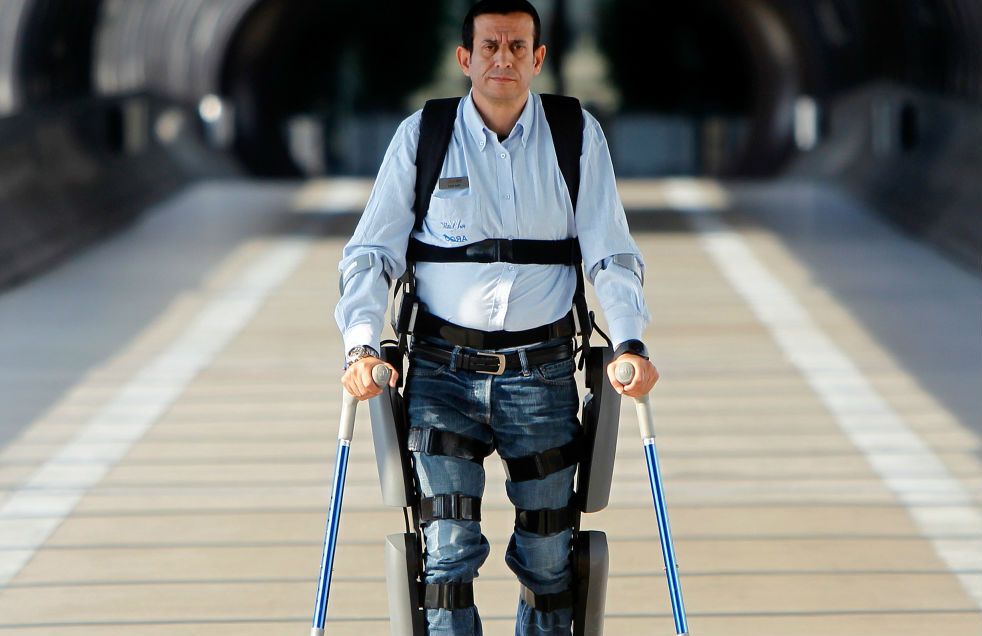Have you ever felt like your stomach just isn't moving food along the way it should? Perhaps you've experienced a persistent feeling of fullness, even after eating very little, or maybe you've had some nausea that just won't quit. These feelings, you know, can be really unsettling and, in some cases, point to a condition often called a "paralyzed stomach." It's a situation where your digestive system, specifically your stomach, struggles to do its job of emptying food into the small intestine.
So, what exactly does "paralyzed" mean in this context? Well, my text tells us that paralysis is, in a general sense, when you can't move certain parts of your body because something has gone wrong with the connection to your brain. It's a loss of motor function in one or more muscles, and it can also mean being unable to act or having progress impaired. When we talk about a "paralyzed stomach," we are, in fact, referring to a medical condition known as gastroparesis, which literally translates to "stomach paralysis." This condition affects the nerves and muscles in your stomach, interfering with the muscle activity that normally moves food along.
Learning about this condition, you see, can help you understand what's happening inside your body and what steps might be taken. We'll look at what causes this issue, what signs to look out for, and how people often manage it to feel better. It's about getting a clearer picture of something that, for many, is a really challenging experience.
Table of Contents
- What Exactly is a Paralyzed Stomach?
- How Your Stomach Normally Works
- When Things Go Wrong: The Paralyzed Stomach
- Recognizing the Signs: Symptoms of a Paralyzed Stomach
- Common Reasons Your Stomach Might Slow Down
- Getting a Diagnosis for a Paralyzed Stomach
- Living with a Paralyzed Stomach: Management and Support
- Dietary Adjustments for a Paralyzed Stomach
- Medical Approaches to a Paralyzed Stomach
- Coping and Support
- Frequently Asked Questions About Paralyzed Stomach
What Exactly is a Paralyzed Stomach?
When someone mentions a "paralyzed stomach," they are, in fact, talking about gastroparesis. My text explains that gastroparesis means "stomach paralysis," and it is a condition affecting the nerves and muscles in your stomach. It truly messes with the muscle activity, known as peristalsis, that moves food along your digestive tract. This digestive condition keeps your stomach from emptying fully, and that, you know, can cause a lot of discomfort and other issues.
How Your Stomach Normally Works
Normally, your stomach muscles are quite busy, actually. They use contractions, like little waves, to break down food and then push it into your small intestine. This process, it's almost like a well-choreographed dance, ensures that nutrients can be absorbed efficiently and that waste moves through. It's a pretty amazing system, designed to keep everything flowing smoothly after you eat. That, in a way, is how your body gets the fuel it needs.
When Things Go Wrong: The Paralyzed Stomach
With gastroparesis, or a "paralyzed stomach," this normal muscle action goes awry. My text points out that damaged nerves are often the culprit. When the nerves that control these stomach muscles are not working properly, the muscles themselves don't get the right signals, or they might not respond as they should. This means food just sits in your stomach for much longer than it's supposed to. It's like a traffic jam in your digestive system, if you can imagine that, and it can cause a whole host of problems.
Recognizing the Signs: Symptoms of a Paralyzed Stomach
Knowing what to look for is really important, you know, if you suspect your stomach isn't working as it should. My text talks about symptoms such as feeling full shortly after starting a meal or long after eating a meal. This sensation of fullness, even after just a few bites, is a very common complaint. It's like your stomach is already packed, even when it isn't.
Other signs, too, can include nausea, which can be quite persistent, and sometimes vomiting. You might also experience bloating, a feeling of discomfort or swelling in your abdomen. There can be a lack of appetite, simply because you always feel full, which can lead to unintended weight loss. Heartburn or acid reflux can also pop up, as food sitting in the stomach can cause issues with stomach acid. It's really a collection of uncomfortable feelings that can make daily life a bit challenging.
Sometimes, people also report upper abdominal pain, which can range from mild to quite intense. Blood sugar levels, especially for those with diabetes, can become very unpredictable because food isn't moving into the small intestine at a steady pace. This can make managing diabetes much harder, as a matter of fact. These symptoms, you see, can vary in how severe they are from person to person, and they might even come and go.
Common Reasons Your Stomach Might Slow Down
So, what actually causes a "paralyzed stomach"? My text mentions that gastroparesis often occurs in people with type 1 diabetes or type 2 diabetes. In fact, diabetes is a leading cause. High blood sugar over a long period can damage the vagus nerve, which is the nerve that controls stomach muscles. When this nerve is damaged, it can't send the right signals to the stomach, causing it to empty too slowly. This nerve damage is a serious concern for many people with diabetes, actually.
But diabetes isn't the only reason, you know. Sometimes, gastroparesis can happen after certain surgeries on the stomach or esophagus. There are also some neurological conditions, like Parkinson's disease or multiple sclerosis, that can affect the nerves controlling digestion. Certain medications, too, especially some pain medications or antidepressants, can slow down stomach emptying as a side effect. In some cases, the cause is just not clear at all, and doctors call this "idiopathic gastroparesis." It's a bit of a mystery sometimes, honestly.
Less common causes might include viral infections that affect the stomach nerves, or even certain autoimmune diseases where the body's immune system mistakenly attacks its own tissues. For some, it might be related to conditions like amyloidosis or scleroderma, which can affect various organs, including the stomach. It's a pretty wide range of possibilities, so getting to the root cause can sometimes take a little time and effort.
Getting a Diagnosis for a Paralyzed Stomach
If you're experiencing symptoms that suggest a "paralyzed stomach," talking to a doctor is the first, and really, most important step. They will usually start by taking a detailed medical history and doing a physical examination. To confirm a diagnosis of gastroparesis, a doctor might order specific tests, you know, to see how quickly your stomach is emptying. One common test is called a gastric emptying scintigraphy.
During a gastric emptying scintigraphy, you eat a meal, usually something like eggs or oatmeal, that has a small amount of a radioactive material mixed in. This material is completely safe, by the way. Then, a special camera takes pictures of your stomach over several hours, typically four hours. This allows doctors to see how fast the food is moving out of your stomach. If a significant amount of food is still in your stomach after four hours, that, you see, strongly suggests gastroparesis.
Other tests might be done to rule out other conditions that could cause similar symptoms. These could include an upper endoscopy, where a thin, flexible tube with a camera is passed down your throat to look at your esophagus, stomach, and the first part of your small intestine. Sometimes, a breath test or a wireless motility capsule might also be used to measure stomach emptying. It's all about getting the clearest picture possible of what's going on inside.
Living with a Paralyzed Stomach: Management and Support
Managing a "paralyzed stomach" often involves a combination of dietary changes, medications, and lifestyle adjustments. While there isn't a single "cure" for gastroparesis, there are many ways to help manage the symptoms and improve your quality of life. It's really about finding what works best for you, because everyone is a little different, you know.
Dietary Adjustments for a Paralyzed Stomach
Making changes to what and how you eat is, arguably, one of the most important parts of managing a paralyzed stomach. My text mentions learning about the diet for gastroparesis. Doctors often recommend eating smaller, more frequent meals instead of three large ones. This reduces the amount of food your stomach has to handle at one time, which can make it easier to empty. It's like giving your stomach a lighter load, so it doesn't get overwhelmed, basically.
Foods that are high in fat or fiber can be particularly difficult for a "paralyzed stomach" to process. Fat slows down digestion, and fiber, especially insoluble fiber, can form bezoars, which are solid masses of undigested food that can cause blockages. So, limiting these types of foods is usually advised. Instead, focusing on low-fat, low-fiber options, and soft or liquid foods, can be very helpful. Blended soups, smoothies, and pureed vegetables are often easier to tolerate. Staying hydrated by drinking plenty of fluids throughout the day is also really important, as a matter of fact.
Medical Approaches to a Paralyzed Stomach
Beyond diet, there are medications that can help manage the symptoms of gastroparesis. Prokinetics, for example, are a type of medication that can help speed up stomach emptying. Anti-nausea medications can also be prescribed to help control nausea and vomiting, which are often very distressing symptoms. For people with diabetes-related gastroparesis, managing blood sugar levels very carefully is absolutely crucial. Sometimes, adjusting insulin doses or other diabetes medications is necessary to prevent blood sugar swings that can worsen symptoms.
In more severe cases, when diet and medication aren't enough, other treatments might be considered. These could include gastric electrical stimulation, where a device is surgically implanted to send mild electrical pulses to the stomach muscles, helping them contract. In very rare situations, surgery might be an option, but it's usually a last resort. It's about finding the right combination of treatments that can offer some relief, honestly.
Coping and Support
Living with a chronic condition like a "paralyzed stomach" can be really challenging, both physically and emotionally. It's not just about the physical symptoms; it can also affect your social life, your work, and your overall well-being. Finding support, you know, whether it's from family, friends, or a support group, can make a huge difference. Sharing experiences with others who understand what you're going through can be incredibly comforting and helpful.
Learning as much as you can about your condition and working closely with your healthcare team is also very empowering. Don't hesitate to ask questions and advocate for yourself. Remember that managing gastroparesis is often a long-term process, and there might be good days and bad days. Being patient with yourself and celebrating small victories along the way can help you cope better. You're not alone in this, and there are resources available to help you navigate it. Learn more about digestive health on our site, and you can also find support and additional information by visiting this page.
Frequently Asked Questions About Paralyzed Stomach
Can a paralyzed stomach be cured?
While there isn't a definitive "cure" for gastroparesis, or a "paralyzed stomach," for most people, the condition can be managed quite effectively with a combination of diet changes, medications, and other therapies. The goal of treatment is usually to control symptoms, improve nutrition, and help the stomach empty more efficiently. For some, especially if the cause is temporary, like a viral infection, the condition might resolve, but for many, it's a long-term situation that needs ongoing management.
What foods should you avoid with a paralyzed stomach?
Generally, people with a "paralyzed stomach" are advised to avoid foods that are high in fat and high in insoluble fiber. Fatty foods can slow down digestion even more, and insoluble fiber can be difficult to break down, sometimes forming masses in the stomach. Examples of foods to limit often include fried foods, fatty meats, whole nuts, seeds, raw vegetables, and fruits with tough skins. It's usually better to stick to low-fat, low-fiber options, and softer or liquid foods, as these are much easier for the stomach to handle, you know.
Is a paralyzed stomach serious?
Yes, a "paralyzed stomach" can be quite serious, actually, especially if it's not managed properly. While it might not always be life-threatening, it can lead to significant health complications. These can include severe dehydration from persistent vomiting, malnutrition due to difficulty absorbing nutrients, and unpredictable blood sugar levels, particularly for people with diabetes. In some cases, it can also lead to the formation of bezoars, which are solid masses of food that can cause blockages in the stomach. So, seeking medical attention and following a treatment plan is really important for your overall health and well-being. For more detailed information on gastroparesis, you might find resources from the National Institute of Diabetes and Digestive and Kidney Diseases (NIDDK) helpful. Learn more about gastroparesis from NIDDK.



Detail Author:
- Name : Fleta Hill
- Username : cyrus03
- Email : ericka34@hotmail.com
- Birthdate : 1977-11-07
- Address : 47279 Skyla Plains Apt. 188 New Verdieberg, LA 25016-1213
- Phone : 401-601-1562
- Company : Frami Inc
- Job : Preschool Education Administrators
- Bio : Eum qui et quis ducimus aut accusantium quia. Dolorum aut soluta eum id magni est. Culpa sed velit quia facilis omnis optio aperiam. Tempore est harum a quas tempora vel.
Socials
facebook:
- url : https://facebook.com/ursula_dev
- username : ursula_dev
- bio : Et eveniet sed est officia exercitationem.
- followers : 224
- following : 179
instagram:
- url : https://instagram.com/ursula_bergnaum
- username : ursula_bergnaum
- bio : Numquam est nostrum repellat sequi. Dolorem culpa enim id beatae quo et.
- followers : 6133
- following : 1385
tiktok:
- url : https://tiktok.com/@ubergnaum
- username : ubergnaum
- bio : Qui ab eos qui quis natus est.
- followers : 3554
- following : 1133
linkedin:
- url : https://linkedin.com/in/ubergnaum
- username : ubergnaum
- bio : Aut similique tempora ducimus magnam qui.
- followers : 6034
- following : 2580
twitter:
- url : https://twitter.com/ursulabergnaum
- username : ursulabergnaum
- bio : Et totam porro rerum. In voluptas incidunt eligendi culpa molestias fugiat. Sit dolorem delectus fugiat quaerat et eos soluta.
- followers : 4273
- following : 1780

